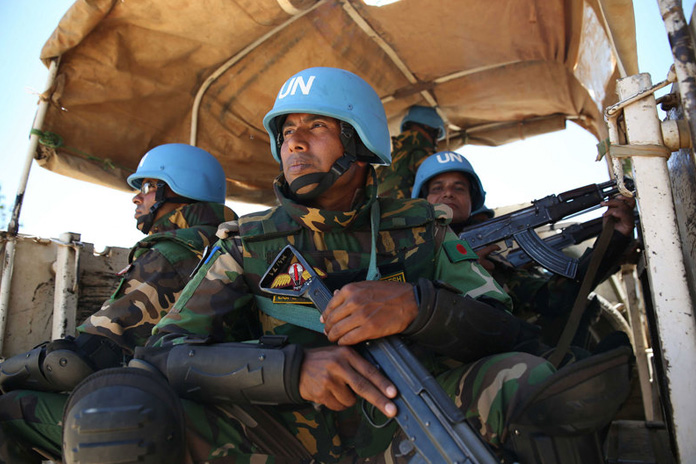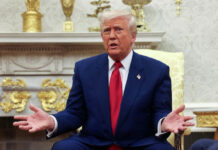As the world grapples with intensifying global challenges, from violent conflicts to climate change, the United Nations (UN) has reinforced its call for a “New Agenda for Peace.” UN Secretary-General António Guterres has positioned peace as central to the organisation’s agenda, especially at UN’s historic Summit of the Future which is to be held from 20 September onwards this month, at UN headquarters in New York, outlining a comprehensive framework that seeks to address the root causes of conflict and foster sustainable peace.
The Secretary-General has stated that the New Agenda for Peace will focus on updating international institutions and tools to prevent and end conflicts, including the UN Security Council.
The Agenda calls for a renewed push to rid our world of nuclear arms and other Weapons of Mass Destruction; and for broadening the definition of security to encompass gender-based violence and gang violence. It takes future security threats into account, recognising the changing nature of warfare and the risks of weaponising new technologies, such as Lethal Autonomous Weapons, that can take life-or-death decisions without human input.
In a speech earlier this year, Guterres remarked, “Peace is the missing piece” as he highlighted the growing discontent and instability in many regions. His statement resonated with a world witnessing escalating violence, geopolitical rivalries, and humanitarian crises. The UN’s New Agenda for Peace seeks to reshape the global approach to these issues by focusing on conflict prevention, international cooperation, and addressing systemic inequalities.
Peace: A distant dream in an increasingly polarised world
The world today is more polarised than ever before, with wars, political unrest, and regional conflicts continuing unabated. According to the UN, global military expenditure has reached unprecedented levels, nearing $2 trillion annually. In stark contrast, peacebuilding efforts and preventive diplomacy have often been sidelined, leaving vulnerable populations exposed to the devastating consequences of conflict.
A major concern for the UN has been the sharp increase in the number of civilian casualties and displaced persons due to conflicts in countries like Syria, Yemen, and Ukraine. Over 100 million people worldwide are now forcibly displaced, according to UN data, underscoring the need for a new framework that goes beyond traditional peacekeeping measures.
Guterres’ New Agenda for Peace draws attention to the importance of early intervention and preventive diplomacy as key elements of conflict prevention. “Prevention remains our best hope,” the Secretary-General noted, emphasising that it is not only cost-effective but essential to avoid the human toll of wars and conflicts.
Tackling the root causes of conflict
At the core of the New Agenda for Peace is the recognition that conflicts often arise from deep-rooted issues such as poverty, inequality, and climate change. The UN believes that addressing these underlying factors is critical to achieving lasting peace.
Poverty and inequality, especially in developing nations, continue to be major triggers for unrest. The UN’s 2030 Agenda for Sustainable Development, with its 17 Sustainable Development Goals (SDGs), is closely aligned with the New Agenda for Peace. Goals such as eradicating poverty (SDG 1), reducing inequalities (SDG 10), and promoting decent work (SDG 8) are seen as key components in building a peaceful and resilient society.
Climate change, too, has emerged as a significant driver of conflict. Rising temperatures, water scarcity, and food insecurity are exacerbating tensions in vulnerable regions, leading to what the UN describes as “climate-induced conflict.” Guterres stressed that peace and sustainability must go hand in hand, calling for global cooperation in addressing the impacts of climate change, particularly in regions already prone to conflict.
Multilateralism and international cooperation
The New Agenda for Peace also reaffirms the UN’s commitment to multilateralism as a cornerstone for addressing global conflicts. With growing tensions between major powers, such as the U.S. and China, the UN is advocating for dialogue and collaboration, rather than confrontation.
Guterres has urged global leaders to come together and strengthen international institutions, including the UN itself, to address emerging threats. The rise of authoritarian regimes, weakening of democratic institutions, and disregard for international law have been major concerns for the UN. In response, the New Agenda for Peace calls for the protection of human rights, the upholding of international norms, and the strengthening of global governance systems to manage conflicts and promote peace.
“We need to rebuild trust,” Guterres said, acknowledging the erosion of faith in multilateral institutions. The New Agenda for Peace seeks to do so by fostering global solidarity and promoting a more inclusive, transparent, and accountable international system.
Digital peacekeeping and cybersecurity
In a rapidly evolving digital world, the UN’s New Agenda for Peace also underscores the importance of safeguarding peace in cyberspace. The rise of cyberattacks, digital surveillance, and the weaponization of technology have introduced new challenges for global peace and security.
Guterres highlighted the need for a multilateral framework that addresses cybersecurity, calling for the establishment of global norms and regulations to prevent digital conflicts. He also noted that peacekeeping efforts must adapt to the digital age, incorporating technological solutions to enhance conflict prevention and resolution.
A youth-centric approach
Another critical aspect of the New Agenda for Peace is the involvement of youth in peacebuilding efforts. Guterres has consistently emphasised the need to empower young people and engage them as key stakeholders in conflict resolution.
“Young people are the drivers of change,” he said, urging governments and international institutions to provide platforms for youth participation in decision-making processes. The UN aims to involve young people in peacebuilding initiatives and ensure that their voices are heard, especially in regions plagued by conflict.
A call to action
As the world faces overlapping crises, from economic inequality to environmental degradation, the UN’s New Agenda for Peace provides a timely call to action. The framework outlines a holistic approach to peacebuilding, with an emphasis on prevention, addressing root causes, fostering multilateral cooperation, and adapting to new challenges in the digital age.
For Guterres, the goal is clear: “The world needs peace, and peace needs the world’s commitment.” As global leaders prepare for the high-level Summit of the Future at the UN General Assembly in September, the New Agenda for Peace will likely be a central topic of discussion, shaping the future of international relations in an increasingly complex world.










